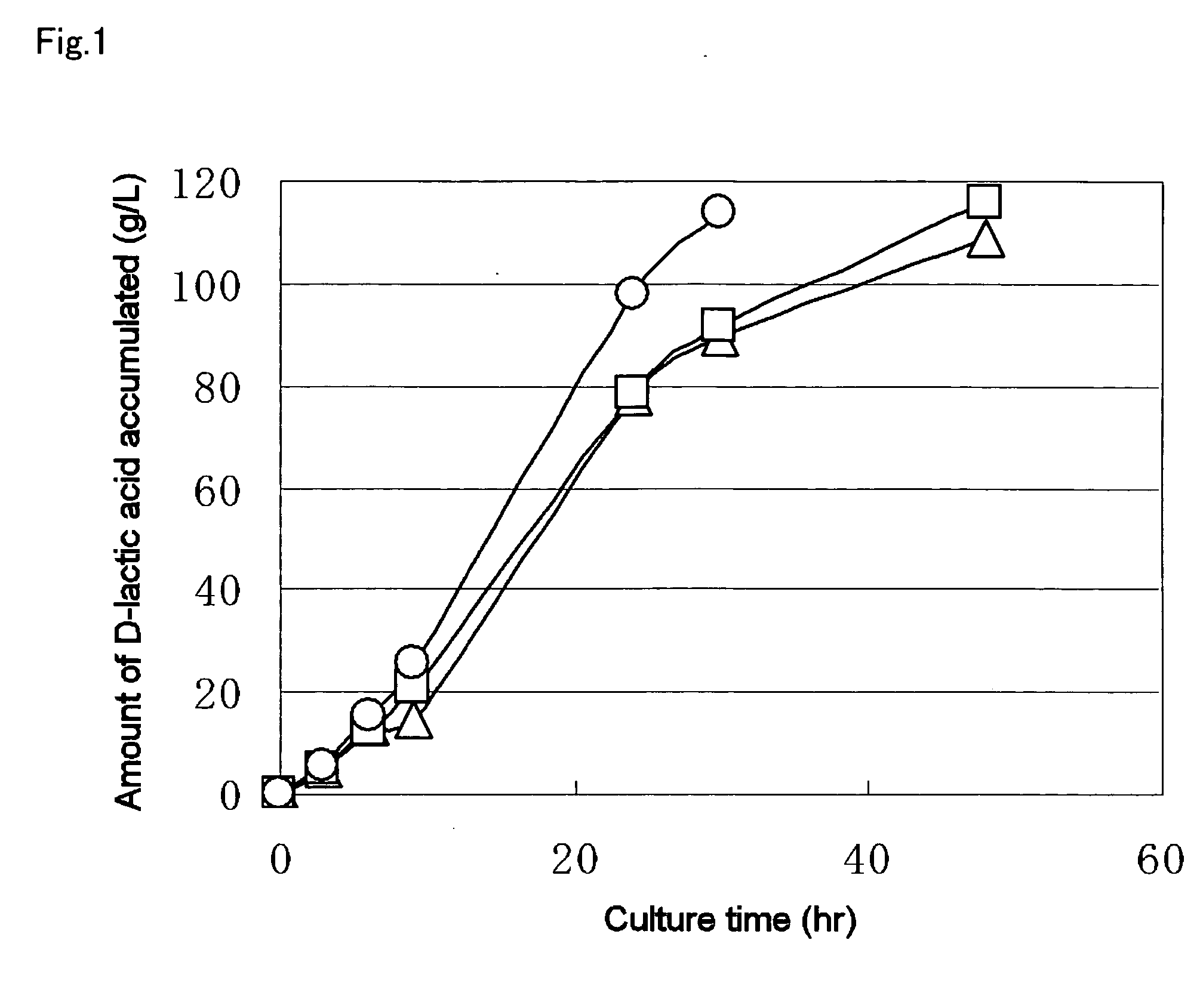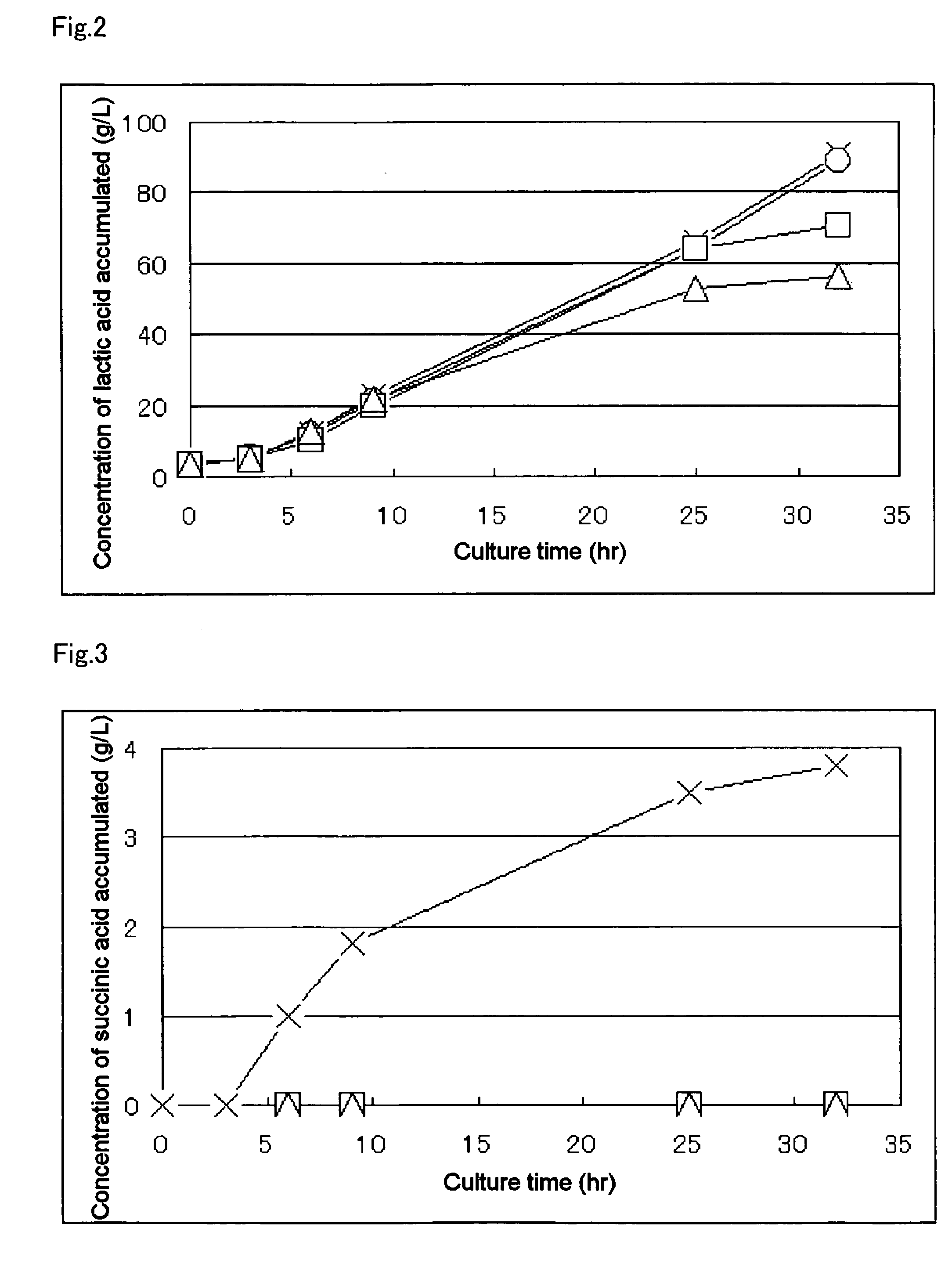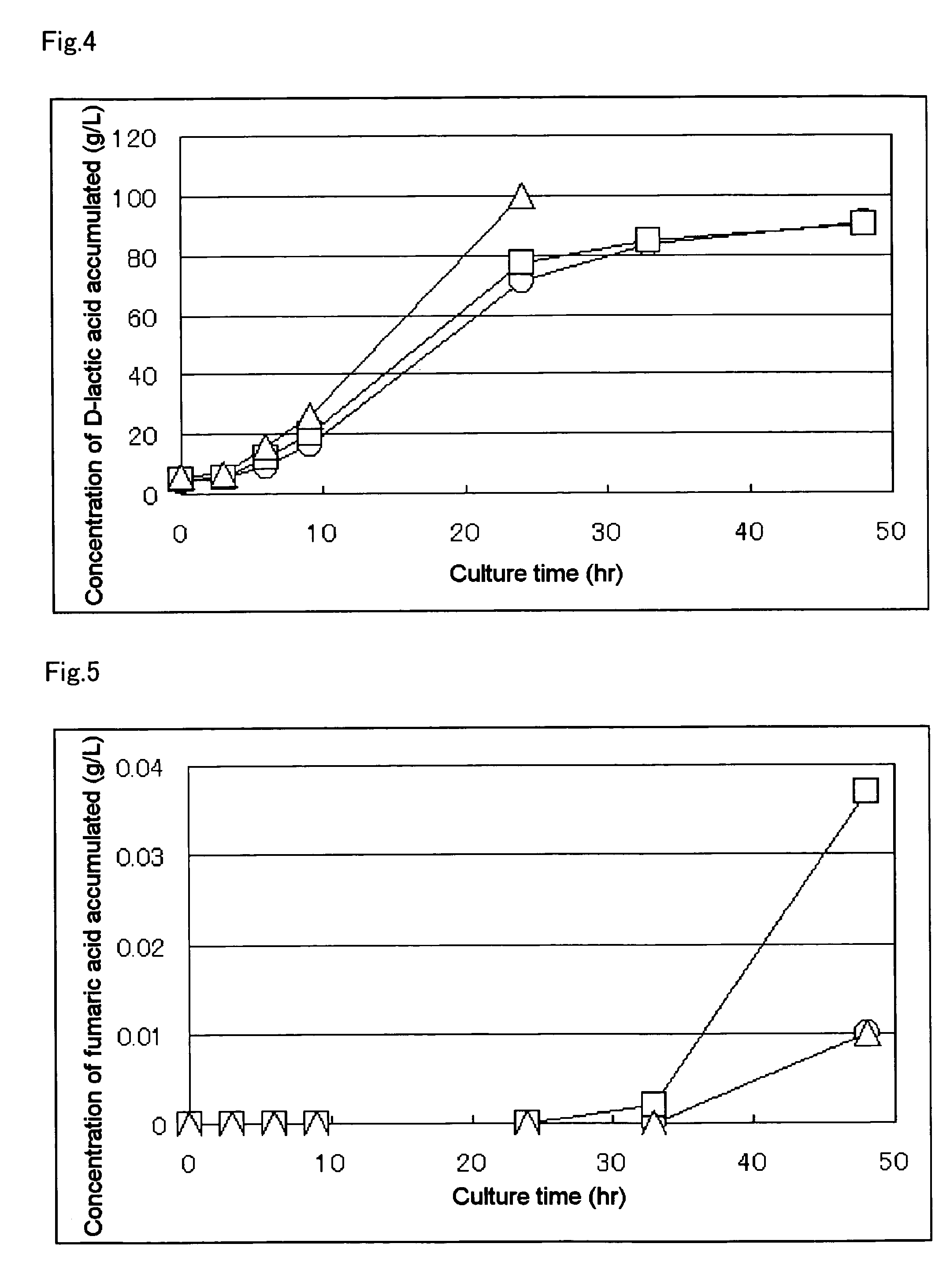Biocatalyst for production of d-lactic acid (as amended)
a biocatalyst and lactic acid technology, applied in the field of microorganisms, can solve the problems of easy application of disruption methods, decrease in optical purity, and decrease in the quality of lactic acid, and achieve the effects of increasing the production cost, reducing the amount of pyruvic acid produced, and high d-lactic acid productivity and selectivity
- Summary
- Abstract
- Description
- Claims
- Application Information
AI Technical Summary
Benefits of technology
Problems solved by technology
Method used
Image
Examples
example 1
Production of Lactic Acid by MT-10934 Strain
[0130] The composition of the medium used in culture is described in Table 1 as below.
TABLE 1Medium compositionGlucose 10%Corn Steep Liquor (manufactured by NIHON SHOKUHIN 5%KAKO CO. LTD.)Ammonium sulfate0.5%Disodium hydrogen phosphate 12-hydrate0.3%Potassium dihydrogen phosphate0.15% Sodium chloride0.15% Magnesium sulfate 7-hydrate0.1%Adecanol LG1260.1%
[0131] The present medium contains 0.34% of reducing sugar estimated as hydrolyzed product, 0.31% of D-lactic acid, 0.31% of L-lactic acid, 0.33% of free amino acids and trace amount of various organic acids, all of which derived from corn steep liquor.
[0132]Escherichia coli MT-10934 strain was inoculated into 25 ml of an LB Broth, Miller's culture solution (Difco244620) contained in a conical flask, and culture was carried out with stirring overnight with 120 rpm as preculture. Then, the whole amount was inoculated into 475 g of the medium of the above-mentioned composition contained ...
example 2
Construction of ldhA Expression Vector and Lactic Acid-Producing Bacteria
[0136] To acquire a serine hydroxymethyltransferase (glyA) promoter, amplification was carried out with a PCR method by using Escherichia coli genome DNA as a template and SEQ ID NO: 1 and SEQ ID NO: 2 as probes, and digestion of the obtained fragment with a restriction enzyme EcoRI gave a fragment encoding a glyA promoter of about 850 bp. Furthermore, to acquire a structural gene of ldhA, amplification was carried out with a PCR method by using Escherichia coli genome DNA as a template and SEQ ID NO: 3 and SEQ ID NO: 4 as probes, and digestion of the obtained fragment with restriction enzymes EcoRI and HindIII gave an ldhA structural gene fragment of about 1.0 kbp. The above-mentioned two fragments were mixed with the fragment obtained by digestion of plasmid pUC18 using restriction enzymes EcoRI and HindIII, ligated using a DNA ligase, and then transformed to an Escherichia coli to give plasmid pGlyldhA.
[01...
example 3
Production of Lactic Acid by MT-10934 / pGlyldhA Strain, Lactic Acid-Producing Bacteria
[0139] The MT-10934 / pGlyldhA strain, which is the lactic acid-producing bacteria obtained in Example 2, was inoculated into 25 ml of LB Broth, Miller's culture solution (Difco244620) contained in a conical flask, and culture was carried out as preculture in the same manner as described in Example 1. After completing the culture, assay of the lactic acids and measurement of optical purity thereof were performed with HPLC according to an established method. The results are shown in Table 3.
TABLE 3Amount of D-lactic acid accumulated94g / kg of culture solutionRecovered amount of culture solution570gWeight of dry microbial mass2.0gOptical purity of D-lactic acid99.9% ee or moreAmount of D-lactic acid accumulated65.2g / kgafter 50 hrs of culture initiation
[0140] In the results, the reason why the total amount of lactic acid is more than the glucose amount added at culture initiation is considered to be th...
PUM
 Login to View More
Login to View More Abstract
Description
Claims
Application Information
 Login to View More
Login to View More - R&D
- Intellectual Property
- Life Sciences
- Materials
- Tech Scout
- Unparalleled Data Quality
- Higher Quality Content
- 60% Fewer Hallucinations
Browse by: Latest US Patents, China's latest patents, Technical Efficacy Thesaurus, Application Domain, Technology Topic, Popular Technical Reports.
© 2025 PatSnap. All rights reserved.Legal|Privacy policy|Modern Slavery Act Transparency Statement|Sitemap|About US| Contact US: help@patsnap.com



